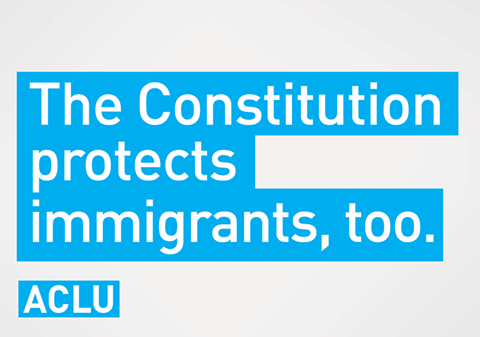It was like any other Monday afternoon in Casper when a 17-year-old boy drove his father to the local bank to cash his check. Any sense of “normal” ended abruptly, however, when ICE agents came up to the boy’s car, tore open the passenger door, ripped his father out of his seat, and swept him away.
Just a few days before, ICE agents in Cheyenne dragged a man on the ground outside their unmarked SUVs. In the encounter, caught on video, the man can be heard groaning in pain as ICE agents shove him into their vehicle, slamming his leg in the vehicle door, but telling him “it doesn’t have to be like this.”
The ICE agents in Cheyenne were right. It doesn’t have to be like this – but they’re the ones to have to change, both in their violent tactics and their lack of community accountability.
Following a national trend
All indicators show ICE has ramped up its work in Wyoming, just as it has ramped up arrests and detentions across the country. In the first three months of 2017, ICE had already issued 94 detainers – requests for local law enforcement to hold people until ICE can come pick them up – in Wyoming. That puts Wyoming on track for nearly three times as many detainers issued in 2017 than in 2016.
But it’s more than just increasing numbers. Local communities across Wyoming are organizing coalitions and rapid response teams to deal with the impacts of ICE’s actions. Families left without working parents need financial support; children who have watched their parents be violently taken from them need mental health support.
Casper saw a large number of immigration holds last week. Additionally, local advocates recorded two incidents where families were stopped for minor traffic violations, questioned about the legal status, and immigration was called. Only in one instance did immigration agents show up.
In one of these cases, the immigration officers attempted to intimidate the family, and told them to be gone by the end of the week. After a couple of hours of being held up on the side of the road, the family was let go, and issued a traffic ticket. Neither of them had committed any kind of crime, or has a record.
And all this is layered on top of over 650 young people living in Wyoming who are directly affected by President Trump’s ending of the DACA program. Now, in addition to worrying about what ICE might do to their family, DACA recipients are themselves vulnerable.
Accountability – or not?
One of the most disturbing aspects of ICE is the lack of transparency and accountability with which the agency functions. Data is nearly impossible to get without filing a Freedom of Information Act Request, and even then the agency delays providing requested information.
There is little difference when the information requested is individual – or being requested by a citizen. In Casper, the spouse of one of the detainees asked ICE directly why their partner was being detained. ICE wouldn’t even answer that most basic question. Local ICE officials have repeatedly ignored requests by Cheyenne community members for a meeting; instead, they had to meet with an ICE ‘community relations’ manager from Denver, who could give little additional information beyond what is already public information.
When ICE rolls up to a house or behind a car, their vehicles are unmarked and their vests say “POLICE.” They give no warning or reason before an arrest. And they give as little information as possible to the families left behind.
The reality is ICE operates with impunity in Wyoming. It is up to individuals and communities to support people and families affected by the violence of our country’s immigration policies and by those who carry such policies out. Groups like Juntos, the Immigration Alliance of Casper, the Immigration Justice Coalition of Laramie County, the ACLU of Wyoming, and lawyers like Trefonas Law in Jackson are working to support affected individuals and communities and advocate for change. Wherever you are in Wyoming, find out how you can support these groups or support people in your own community.
Because one thing is clear: without your involvement, there are people who will be alone and without support. And that’s just not how we do things in Wyoming.


